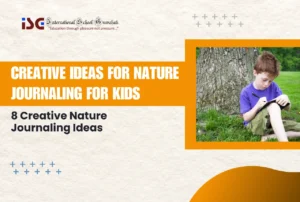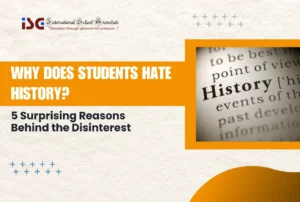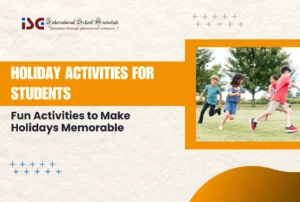![]()
Life can be tough, no matter who you are. What really counts is having the right skills. Have you ever wondered if your child knows how to take care of themselves? Can they make important decisions on their own? It’s crucial to teach them practical life skills.
Learning about money, for instance, is more than just theory. They need to know how to budget, save, and invest. In today’s fast-paced world, students face a lot of pressure to succeed. The early years of education are when young minds start to understand things. It’s not just about giving them facts, but also helping them think and solve problems. This is where life skills come in.
Life skills education in schools draw from our personal experiences, those we’ve lived through or can easily relate to. Take teaching money, for example. Simply explaining it without demonstrating how to budget, save, or invest won’t prepare them for the future.
Moreover, In today’s rapidly changing world of science and technology, students face intense pressure to excel, often at the expense of real learning experiences. The early elementary years mark a crucial phase in how young minds process information. It’s not just about providing facts, but also about fostering critical thinking and problem-solving skills through action. This equips them to adapt, think creatively, and thrive in the real world. This is where life skills step into the spotlight. In this blog we will explore the significance of inculcating life skills education in schools.
What are life skills?
The World Health Organization defines life skills as a set of psychosocial competencies and interpersonal abilities. These skills empower individuals to make informed choices, tackle problems, think critically and creatively, communicate effectively, establish healthy relationships, show empathy, and responsibly manage their lives in a positive and healthy manner.
Core life skills play a pivotal role in shaping character. These encompass decision-making, problem-solving, creative and critical thinking, effective communication, self-awareness, empathy, time management, stress management, resilience, and emotional coping.
Examples of life skills include:
- Self reflection
- Critical thinking
- Problem solving
- Interpersonal skills
The Benefits of Teaching Life Skills in Education at a Young Age
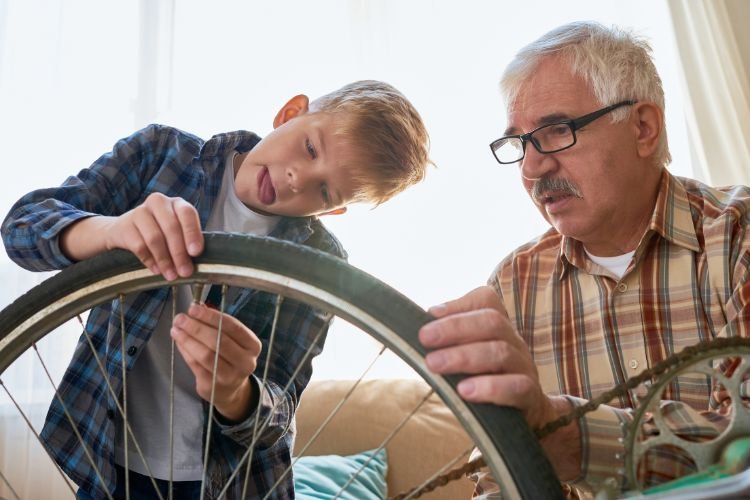
Teaching kids important skills for life means helping them make good choices and develop good habits that will help them in the long run.
Here are some easy ways parents can teach life skills to kids at home:
- Give them tasks to do at home, like chores or handling their allowance. This helps them learn how to make decisions and solve problems.
- Plan fun activities with family and friends that also help kids learn how to work together and get along with others.
- Besides knowing basic things like brushing their teeth and getting dressed, kids should also learn what to do in everyday situations, like going to school safely or what to do if they’re being treated badly.
- Emotional control, learning to create healthy boundaries and knowing when. to exit a toxic situation should be part of life skills classes in schools

Reading books to kids is super important! It helps them with lots of things like understanding different feelings, concentrating, and even thinking in creative ways.
Helping kids learn how to solve problems and think things through is a process that keeps going. Starting with examples they can understand and use on their own is a great way to begin.
Choosing The International School Guwahati offers your child an opportunity to learn beyond textbooks. The school incorporates a specialized life skills curriculum along with special education.
Here are Some Essential Life Skills to Learn Today
- Critical Thinking and Problem-Solving
- Develop analytical and logical thinking skills.
- Evaluate information critically and make informed decisions.
- Solve problems creatively and strategically.
- Embrace challenges and foster a growth mindset.
- Time Management
- Prioritize tasks and set achievable goals.
- Create effective schedules and manage deadlines.
- Overcome procrastination and optimize productivity.
- Balance work, personal life, and self-care.
- Financial Literacy
- Understand personal finance basics.
- Budget, save, and invest wisely.
- Manage debt and make informed financial decisions.
- Communication Skills
- Master the art of effective communication.
- Practice active listening and empathy for understanding.
- Develop assertiveness and express oneself with clarity.
- Navigate conflicts and build strong relationships.
- Adaptability and Resilience
- Embrace change and cultivate adaptability.
- Build resilience to bounce back from setbacks.
- Navigate uncertainty with a positive mindset.
- Develop flexibility and learning agility.
Mastering these skills will not only enrich your personal and professional life but also empower you to navigate the challenges of an ever-changing world.
Wind Up
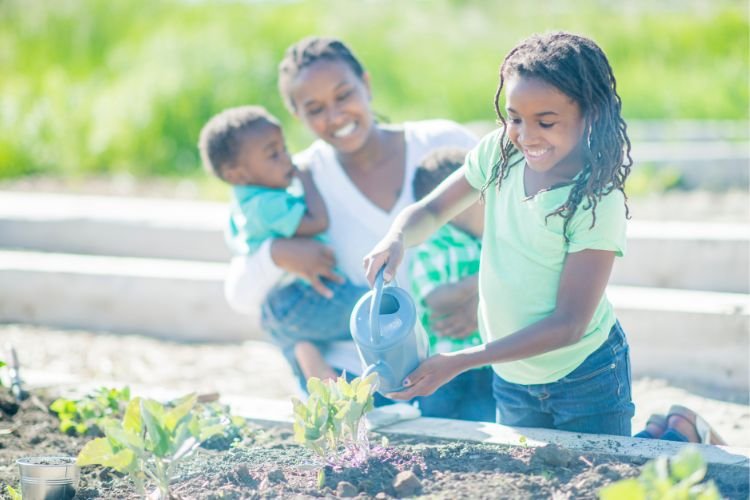
Life skills education in schools is crucial for the holistic development of individuals, equipping them with essential abilities to navigate challenges, make informed decisions, and lead a fulfilling life. This comprehensive education style fosters vital competencies such as critical thinking, problem-solving, effective communication, and emotional intelligence. It empowers individuals to handle diverse situations, build positive relationships, manage stress, and adapt to evolving circumstances. In a rapidly changing world, the acquisition of life skills is indispensable for personal growth, professional success, and overall well-being.



